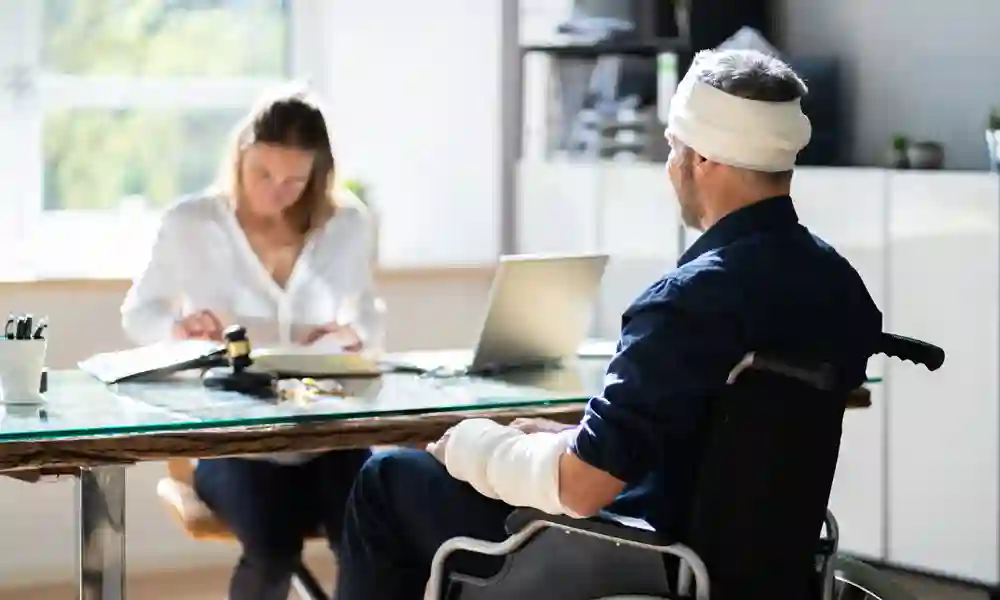Hello, dear readers! When it comes to personal injury cases, the old saying “seeing is believing” takes on a whole new level of significance. Evidence is the cornerstone of any successful personal injury claim, and it plays a pivotal role in determining the outcome of your case. In this article, we’ll delve into the world of personal injury law from a lawyer’s perspective and emphasize the crucial importance of evidence in building a strong case.
Chapter 1: The Foundation of a Personal Injury Case
Personal injury cases arise when an individual is injured due to someone else’s negligence, carelessness, or wrongful actions. These cases can encompass a wide range of incidents, from car accidents and slip and falls to medical malpractice and product liability. Regardless of the specific circumstances, evidence is the bedrock upon which these cases are built.
Chapter 2: Types of Evidence
Evidence in personal injury cases can take various forms, and it often falls into the following categories:
- Documentary Evidence: This includes medical records, police reports, accident reports, and any written correspondence related to the incident.
- Physical Evidence: Physical evidence encompasses tangible items such as damaged property, defective products, or accident debris.
- Testimonial Evidence: Testimonial evidence includes witness statements, depositions, and expert opinions provided by professionals such as accident reconstruction experts or medical experts.
- Photographic and Video Evidence: Photographs and videos of the accident scene, injuries, or the situation leading up to the incident can be powerful forms of evidence.
- Electronic Evidence: In today’s digital age, electronic evidence, such as text messages, emails, or social media posts, can also play a significant role in personal injury cases.
Chapter 3: Establishing Liability
In personal injury cases, one of the primary objectives is to establish liability, i.e., to prove that the defendant (the person or entity being sued) was at fault for the accident or injury. Evidence plays a critical role in this process. Lawyers use evidence to demonstrate how the defendant’s actions or negligence directly caused the injury.
Chapter 4: Proving Causation
Causation is a fundamental element in personal injury claims. It’s not enough to establish that the defendant was negligent; you must also prove that their negligence directly caused your injuries. Evidence, such as medical records and expert testimony, is used to establish the causal link between the defendant’s actions and your injuries.
Chapter 5: Calculating Damages
In personal injury cases, the goal is to secure compensation for the damages you’ve suffered. This includes medical expenses, lost wages, pain and suffering, and other losses. Evidence is essential in calculating these damages accurately. Medical bills, pay stubs, and expert opinions are just some of the evidence used to quantify the extent of your losses.
Chapter 6: Strengthening Your Case
A compelling case relies on the strength of the evidence presented. The more convincing and persuasive your evidence is, the better your chances of obtaining a favorable outcome. Personal injury lawyers meticulously gather and present evidence to build a robust case on your behalf.
Chapter 7: Investigating the Scene
In many personal injury cases, lawyers and their investigative teams visit the accident or incident scene. They document physical evidence, take photographs, and gather information that can be critical in reconstructing the events leading up to the injury. This scene investigation strengthens the case and provides valuable evidence.
Chapter 8: Witness Statements
Witness statements are a vital form of evidence. Eyewitnesses can provide firsthand accounts of the incident, shedding light on what happened and who was at fault. Lawyers conduct interviews and depositions to gather witness statements and use them to corroborate your version of events.
Chapter 9: Expert Testimony
Expert witnesses play a crucial role in personal injury cases. These professionals, such as medical experts or accident reconstruction specialists, provide expert testimony to explain complex issues to judges and juries. Their opinions and analyses can be pivotal in establishing liability, causation, and damages.
Chapter 10: The Importance of Timely Evidence Collection
Timing is everything when it comes to evidence collection. Lawyers must act swiftly to gather and preserve evidence before it’s lost or compromised. This is particularly critical in cases involving perishable evidence, such as skid marks at an accident scene or security camera footage.
Chapter 11: Negotiations and Settlements
Even in cases that don’t go to trial, evidence plays a central role in negotiations with the at-fault party’s insurance company. A strong evidentiary foundation can lead to more favorable settlement offers. Your personal injury lawyer uses the strength of your evidence to negotiate for maximum compensation.
Chapter 12: The Courtroom Battle
When personal injury cases go to trial, evidence takes center stage. Lawyers present their evidence to judges and juries, making compelling arguments based on the facts and testimony. In a courtroom battle, the quality and persuasiveness of your evidence can make or break your case.
In conclusion, evidence is the lifeblood of personal injury cases from a lawyer’s perspective. It is the essential tool that personal injury lawyers use to build strong cases, establish liability, prove causation, calculate damages, and secure compensation for their clients. The importance of gathering and preserving evidence cannot be overstated. If you’ve been injured due to someone else’s negligence, it’s crucial to seek legal representation from a personal injury lawyer who understands the critical role of evidence in your case. With the right evidence and legal expertise, you can pursue justice and maximize your compensation for the injuries and losses you’ve suffered.




